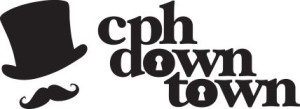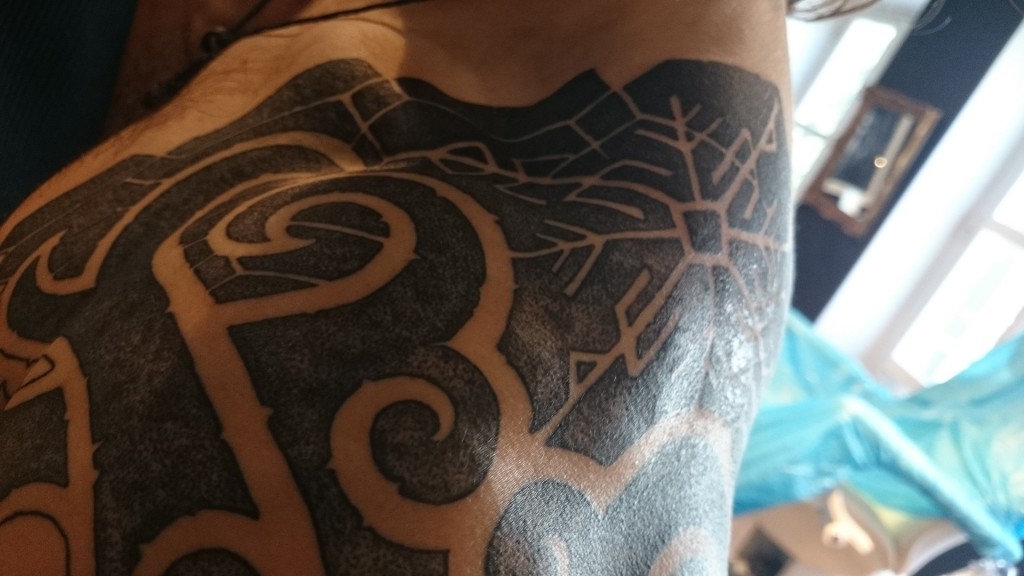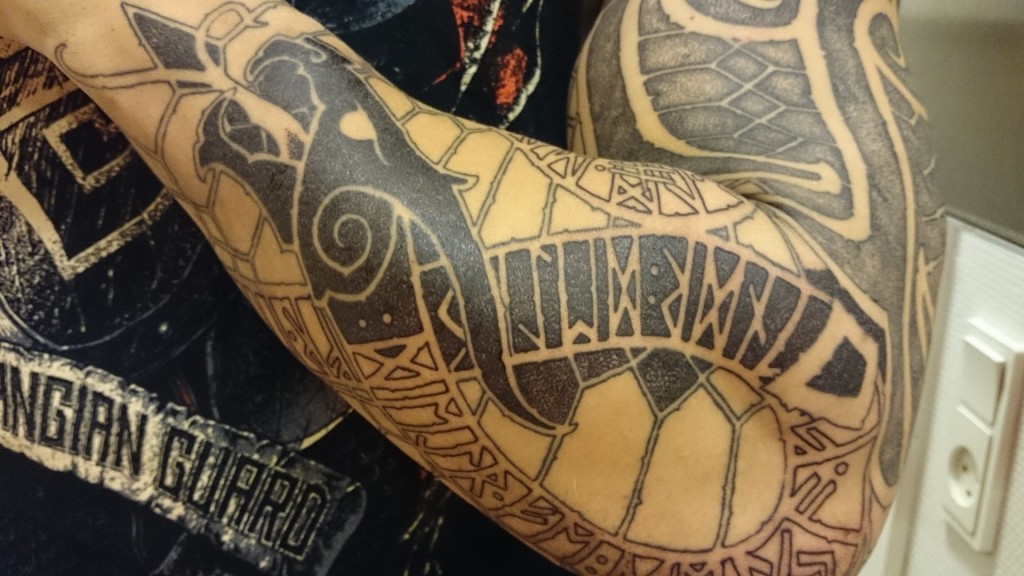Deeds Never Die

This week, I flew back to Copenhagen to finish my tattoo at the mighty Meatshop. The plan was for three more days of dotwork (two black and one colour), followed by a fourth day when Vikki would get her back-piece finished.
I knew I was in for a rough few days. But exactly how rough…?
I flew out a day early and checked into the Downtown Hostel. I’d normally find somewhere on Air B&B, but everywhere in Copenhagen had been booked up long in advance. As a result, I was paying £30 per night for a crappy, creaky aluminium bed in a room full of people snoring and screwing.
The hostel itself was a nice place, but for some reason it was rammed full of people: mainly English and mainly morons. I have no idea why they were there, but I could barely hear myself think, let alone keep track of the time using the metronomic thumping of my Guildsman’s heart.
So I fled. Somewhere down the road, I grabbed myself a sandwich and a delicious red beer, which set me back another £30. Copenhagen is wonderful, but – by the Udders of Audhumla – it is costly!
But this isn’t about the hostel (which is actually very nice), or the food (which is also very nice). This isn’t even about Audhumla, may she rest in peace. This is about the following three days. I begin:
Day Four of my Meatshop Tattoo: 28.05.2014
To start with, Peter finishes the bindrune on my shoulder. It immediately looks three times as good, now the design stands out as a negative against the black background.
Next up is my forearm. Currently, it is the outline of a winding wyrm, another powerful bindrune and a series of scaled armour plates. Our plan is to fill the wyrm with a runic inscription, so Peter divides it into sections to establish how many runes he can fit into it.
We can fit about 100 runes into the wyrm. Now we need to decide what to write.
I have been studying Hávamál, the Sayings of the High One. It is essentially an ancient Iceland poem in which Odin rants like an old man about how wise he is. That may not sound inspiring, but it definitely has its moments.
Uffe is in the shop again today. Between his mind and Peter’s, there is a seemingly limitless supply of insights about runes, ancient texts and general life philosophy. There is also near constant hilarity, which makes the hours fly by.
After much discussion, we settle on a particular stanza. It is one of the most popular verses of Hávamál, yet despite my alternative-leanings this doesn’t bother me. It’s apt.
The challenge, of course, is to get this stanza accurately into the original language (Ancient Icelandic), then transcribe it into Elder Futhark, the oldest of the runic alphabets. In any normal environment, this might prove tricky. But this isn’t a normal environment; this is the Meatshop.
First, we find a copy of Hávamál in the original Norse. There are plenty. We locate the correct verse and check our translation with a lovely Icelandic man who happens to be in the shop. Peter, very well versed in the Elder Futhark, then transcribes the writing into runes, which he checks with Uffe: his fellow Meatshop artist and something of a rune master.
When we were are all content with the runes, Peter draws them onto my arm in sharpie. We have a little space leftover, so he adds his own pattern of runes to the end of our passage.
Then he gouges it all permanently into my skin in stripes of ink.
With our remaining hours, Peter starts to fill in the dotwork of my forearm, starting with the wyrm head, some armour and the initial few runes.
So ends the first day.
For those who are interested, here is the part of the poem we used:
Hávamál Stanza 77
[column col=”1/2″]Old Norse
Deyr fé,
Deyja frændr,
Deyr sjálfr et sama;
Ek veit einn,
At aldri deyr:
Dómr um dauðan hvern.
Cattle die,
Kinsmen die,
You yourself die;
I know one thing
Which never dies:
The judgment of a dead man’s life. [/column]
Sounds a bit morbid, doesn’t it? I don’t see if that way. Here is what I get from this passage:
Forget wealth, forget health: everybody dies. All that matters is what you do with your life.
Deeds, my friends; Deeds Never Die.
Thus, the Guild.










